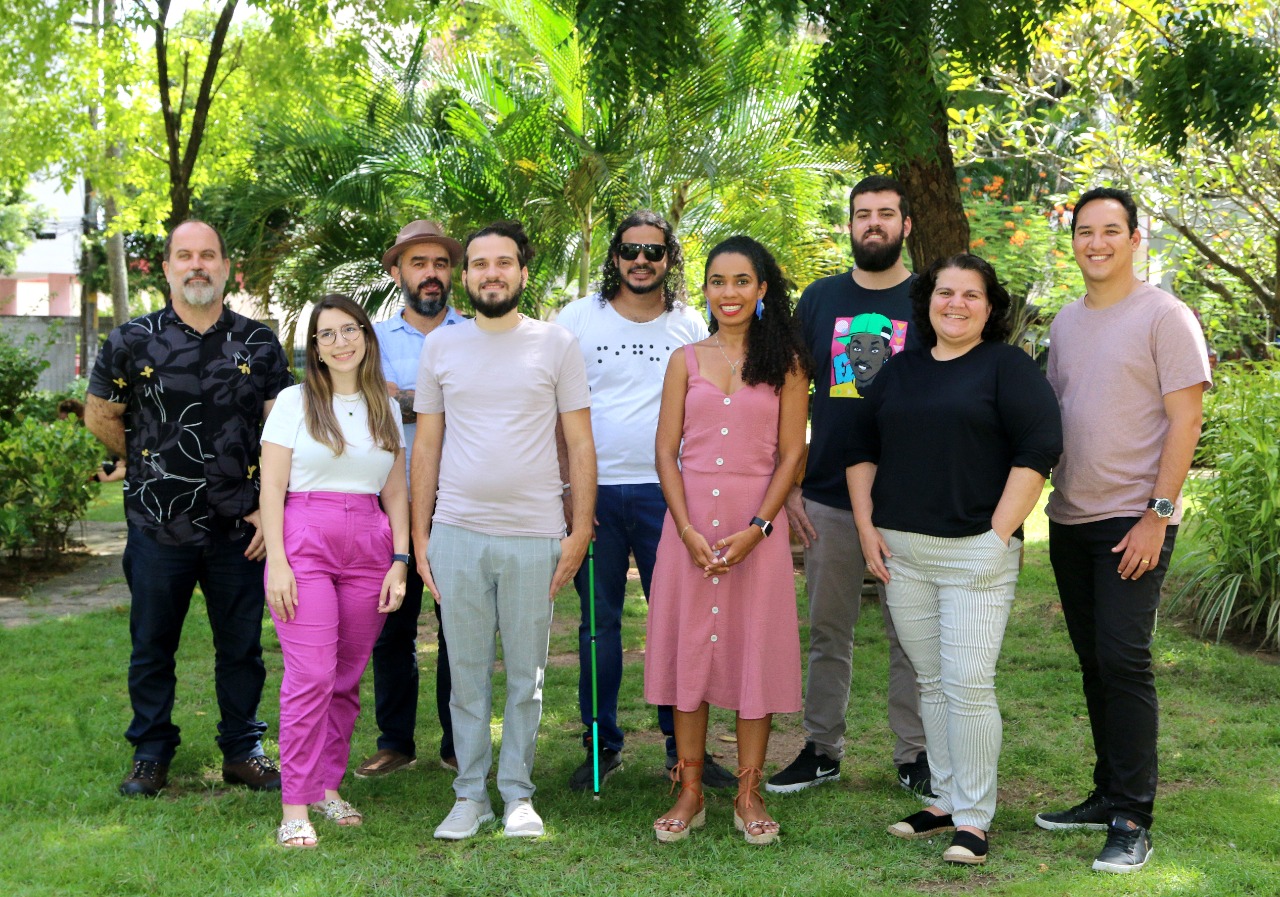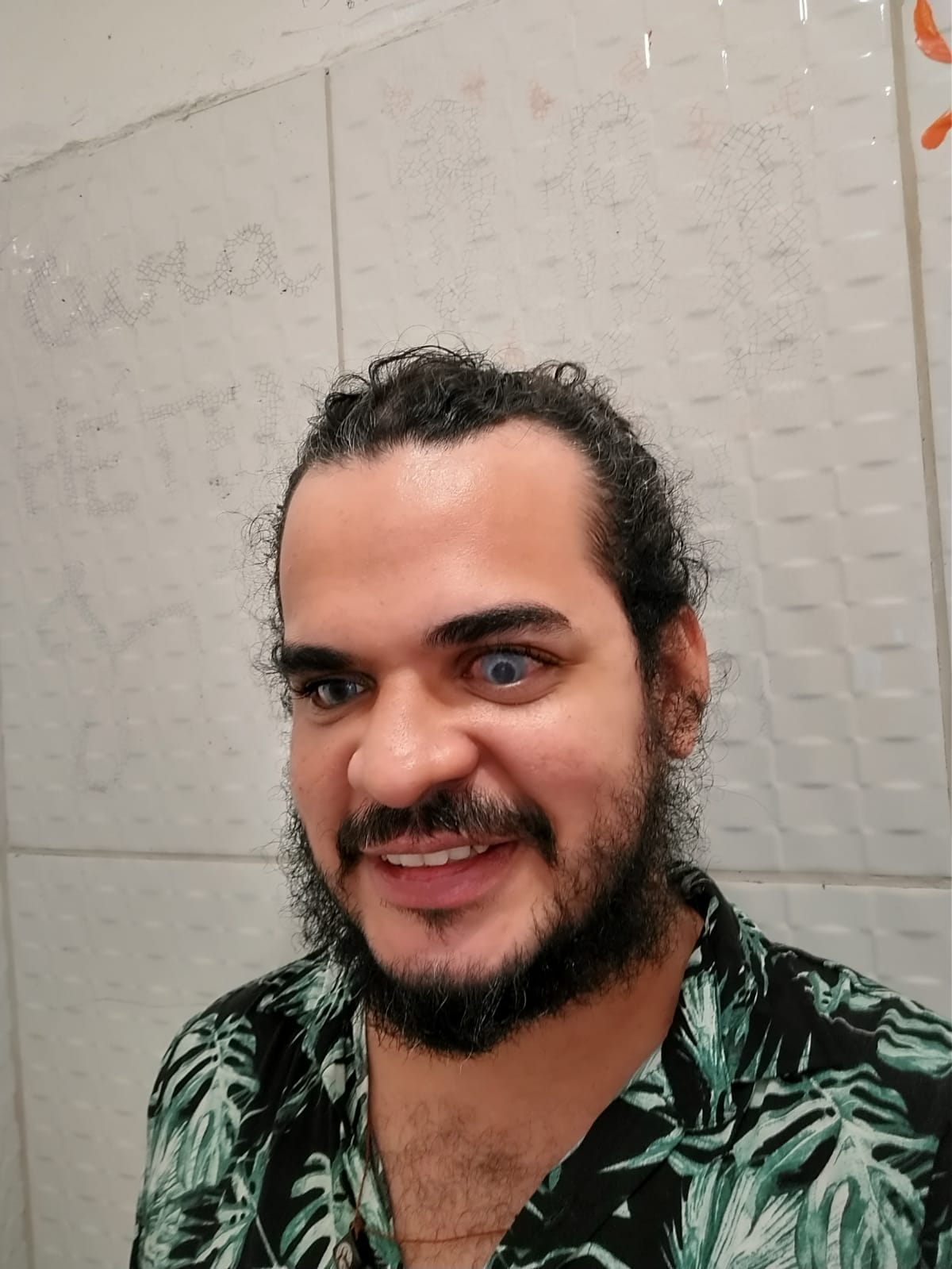The project brings together independent media outlets in the Northeast to think about accessibility solutions in journalism
Created in 2022, the project appears as a vanguard initiative for the inclusion of people with disabilities in the consumption of news


Credit: disclosure
By: Eduarda Nunes – Lupa do Bem / Favela em Pauta
Have you ever stopped to think about how blind and low-vision people consume the news published by the media, whether printed or digital? Mariana Clarissa thought about it, and it was the research she carried out during the Masters in Creative Industries at the Catholic University of Pernambuco (UNICAP) on journalistic accessibility that gave rise to a project involving the Google News Initiative and a network of independent communication vehicles from Northeast Brazil.
In 2022, Lume, the name given to the project, emerged as one of the first initiatives to propose solutions for the inclusion of people with disabilities in journalism through an innovative application, which was developed with the idea of connecting the academic community to the communication media market. The project developed by Mariana initially carried out a curatorship of content accessible on journalistic portals.
Carolina Monteiro, Head of Unicap’s School of Communication and one of the journalists who created Marco Zero Conteúdo, a reference vehicle in the northeast of Brazil’s independent communication, is directly involved in the project. She was responsible for proposing the expansion of Mariana’s research with a team dedicated to also proposing solutions based on the results found.
The research involved a consultation with blind people and journalistic portals about how access to communication vehicles works. The idea was to understand how both the offer and the consumption of journalistic content for this audience were carried out.
In addition, the 21 most accessed websites in Brazil, according to the Digital News Report ranking, were analyzed by consultants Bruna Alves Machado da Silva and Michel Platini, and it was identified that none of them met the accessibility criteria.
The result of this first phase was that, in general, the vehicles understand the importance of creating accessible content, but they don’t know how or what to do. “Sometimes you don’t need money, just effort and time. To decide to turn all your image content into audio-described content, it’s hard for you to know how to make a good audio description”, exemplifies Carolina about the myth of the high financial cost for promotion of accessibility.
For complex results, integrated solutions
In the phase of proposing solutions to the problems found in the research, 8 more independent media from the Northeast were able to integrate a network that not only thinks about accessibility in journalism but also the approach to topics that blind and low-vision people believe are important to them. “We understood that this was a complex problem and that it needed an integrated solution”, says Carolina.
The new project team was formed by the portals Eco Nordeste (CE), Mídia Caeté and Olhos Jornalismo (AL), Coletivo Retruco and Diadorim (PE), Revista Afirmativa (BA), Agência Saiba Mais (RN) and Cajueira Newsletter. Throughout 2022, some deliveries were made and the team was divided to bring technology and content solutions.
At the beginning of the year, a diagnostic tool for website accessibility and the Lume app was launched. In the diagnostic platform, based on a few questions, a preliminary analysis of the site is made and a report is created on the main accessibility problems of the portal and how it can be resolved. The application, on the other hand, provides materials from the vehicles involved, complying with all accessibility items and is available for download on the Play Store.
“One thing that we heard a lot in the interviews was that blind people did not have their agendas met very much”, says Carolina, reinforcing that also bringing up themes and facts that are important to reflect on from the experiences of people with disabilities are also part of accessibility and social inclusion.
Creating a space to share observations, experiences, and suggestions in accessibility
It was in this perspective that LumeCast was created, a podcast that aims to address themes that were suggested by the public that participated in the research phase of the project.
In the first season of the podcast, discussions of gender, race and the autonomy of black women were the topics discussed, in addition to the approach to the creation and execution of the Lume project. The next season will be released in September 2022, with the theme of disinformation and media education.
Carolina draws attention to the fact that the lack of accessibility of information can open space for producers of false and misleading content, aware of this gap, to attract the audience of people with disabilities. “You have access to disinformation, but you don’t have access to high quality journalistic content”, she warns.
In addition to the podcast, a manual of good practices for the production of journalistic content accessible to people with visual impairments was also created to guide media communications and other organizations interested in becoming accessible. The document is available on the website, together with the research that led to the creation of these materials.

“With the manual of good practices, we can prepare some tips, instructions and guidelines that journalists and journalism portals can perform on a daily basis simply and objectively”, comments Michel Platini, accessibility consultant, former publicist and blind. “We know about the rush, but if we put the idea of thinking about accessibility in the work schedule, anything is possible”, he reinforces. Michel has been part of the project since Mariana Clarissa’s master’s thesis, which provided the basis for Lume as it is today.
To strengthen accessibility in journalistic media
“Beyond products such as apps, studies, etc., I think it is in the exchange with professionals that we are able to engage in the change in inclusive practice, encouraging the development of accessible products”, says Michel. In addition to generating this alert about the exclusion of people with disabilities from informative content, the study also shows the need to debate issues that are more relevant to them due to the condition of their own disability in a world that is capableist.
To support Lume, in addition to strengthening these organizations that collaborate towards more accessible journalism, it is also important to publicize the project so that more people with disabilities have knowledge and access to the application and other products.
The future plan of the Lume project is to become a startup that will think and make more possible projects that promote accessibility in the best way in the area of communication. Michel and Mariana are responsible for continuing and expanding the reach to more journalistic companies and people with disabilities to high quality information.


